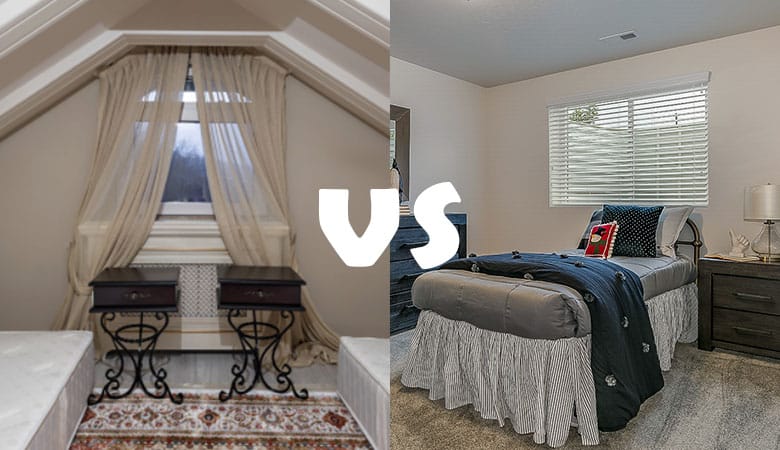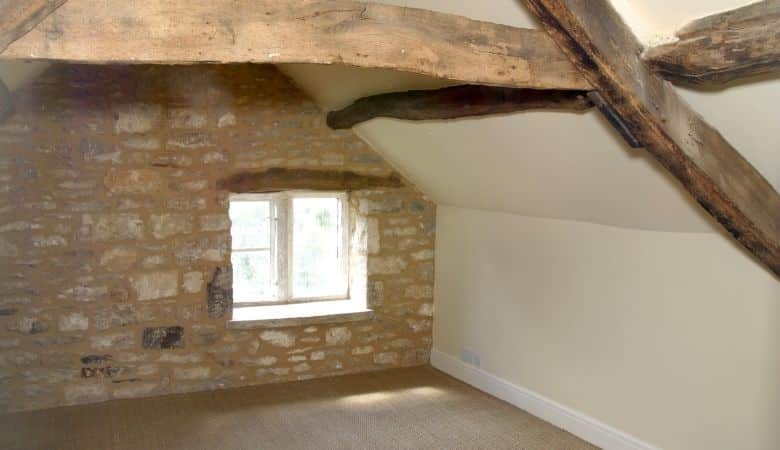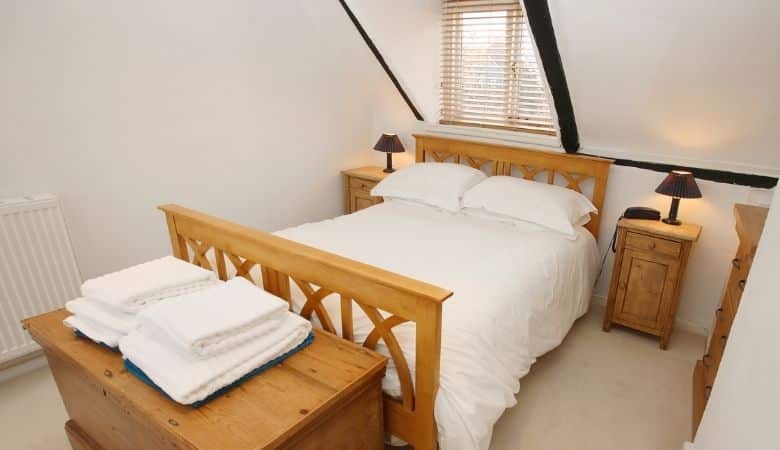The attic space in your house might be coming across as wasted space. Filled with all the relics of your past that you don’t know what to do with. What if you used that space to increase the value of your home and converted it into a bedroom?
From a legal point of view, you can convert your attic into a bedroom space. As long as you follow the building code in your area that determines the minimum requirements for a habitable space. Building codes differ from country to country, state to state, and even municipality to municipality. So before you go ahead with your attic bedroom renovation, be sure to check your local building code.
This blog post, however, will discuss the requirements from the International Residential Code (IRC) for one and two story dwellings that you need to take into consideration before you can renovate your attic into a bedroom.
Attic Bedroom vs. Basement Bedroom

Attics and basements seem to be quite similar in their use. They are both ‘extra’ spaces that are mostly used for storage or as an out of the way entertainment area.
These spaces can both be used to add value to your home by converting them into usable rooms in your house. The attic space seems to have less problems due to its location and function.
Unlike the basement, the attic should not have any problems with flooding or rising damp. This can cut your renovation costs significantly since you won’t have to follow the code for areas that suffer from these problems.
Another advantage that the attic has over the basement is that there are not often large, noisy appliances that are situated in the attic. This is important for the comfort level of your new living space.
Radon, a ground level gas that is toxic to humans, may be found in the basement. Your attic, however, should be free from radon.
While all the above suggests that the attic is the better place to put that extra bedroom, let’s look at a few other things you need to consider before you convert your attic into a bedroom.
The Size of Your Attic Matters
The first thing you need to think about is the size of your attic. Is it big enough to legally squeeze a bedroom into?
While the floor area might be big enough, an important aspect of attic spaces is the ceiling height. An area only counts as a livable area if the ceiling is higher than 5 feet.
So while those cool angles created by the ceiling provide visual interest to the space, they will have an effect on how much of the space is legally considered as usable space.
In order to pass the code, there must be an area of at least 70 square feet where the ceiling is 5 feet or higher.
Furthermore, at least half of the livable space must have a ceiling height of 7 feet or more. This can get confusing and complicated, so make sure to consult with your building professional on how best to meet this code requirement in your attic space.
If you have the budget, creating a dormer ceiling is a popular way to increase the usable space in your attic. This is an expensive option though as the addition of a dormer can be an extensive renovation.
Your Attic Beroom Must Have Windows

The window area of a habitable space applies to all rooms in the house, not just a bedroom. This could be of particular interest for your attic because of the lack of windows in some attics.
The code says that the minimum glazed area needs to equal 8% of the usable floor area. The reason behind this requirement is to ensure adequate natural light in the space.
Of those windows, half of them need to be openable. So a minimum area equal to 4% of your floor area needs to be openable windows.
This is to ensure adequate ventilation in your livable area. This point is particularly relevant to attics as they can easily become stuffy and uncomfortable. As you may remember from high school science class, hot air rises. This means that a lot of the hot air in your house will find its way into the attic of your home.
This will quickly result in an uncomfortably hot bedroom in your attic if it is not properly ventilated. So take the ventilation issue seriously and don’t skimp on those openable windows.
Climate Concerns For Your Attic Bedroom
The next thing to consider, from a code point of view, is how much you can control the temperature in your attic. As these spaces are not often designed and built to be habitable spaces, climate control is not always a consideration when they are designed and built.
In order to make sure that your climate control system is effective in your attic, make sure your attic is correctly insulated. A large majority of the heat in your home is lost through uninsulated attics. Following that logic, the attic will be very cold in the winter months and very hot in the summer months. Not the ideal conditions for a bedroom space. Make sure you have adequate insulation in your attic before you move ahead with the renovation.
By code, you need to be able to maintain a temperature of at least 68 degrees Fahrenheit (20 degrees celsius). This should be simple enough in the summer months because of rising hot air. Your heating system might have to do a bit of extra work in the winter to maintain this temperature.
Can Your Attic Handle The Weight?

This might be the most important consideration of all. Can the attic handle the weight of people constantly moving around up there?
The code stipulates that your attic needs to be able to handle a weight of 30 pounds per square foot. Does this sound complicated? That’s because it is.
There are online calculators that can help you with this complicated equation. Although,in order to use an online calculator like this you need to know a huge list of intricate details about the construction of your attic. Including all the dimensions of your joists, the width between them, and even the species of wood that was used to create these joists.
It is up to the builder to meet these code requirements, and the building code official in your area is ultimately the one that decides whether your floor is strong enough. So between these two professionals, they should know how to meet this requirement.
If you plan on doing the renovation yourself, however, you are going to have to get to know your attic floor very well.
Can You Get Tnto The Attic?
An issue that is often prohibitive to converting an attic into livable space, such as a bedroom, is the issue of access. As most attics were not designed and built to be lived in, the access is not up to scratch for a habitable space. If you currently access your attic by a pull down hatch, you have some work to do.
This is often the first and most major roadblock on the path to converting your attic to a bedroom. You are going to need a set of permanent and fixed stairs going up into your attic.
This can be a problem because a staircase takes up a lot of space. Space that might not actually be available on the floor below.
Furthermore, staircases have a whole host of requirements to meet before they are up to code. It would be best to discuss this issue with your local building code official. In some situations, exceptions may be granted where it is not possible to build a staircase that matches the requirements.
There also needs to be an emergency escape in your attic. This must be an opening of certain dimensions that is alternate to the main entrance to the room. This is something that your building code official will be able to help you with.
In any case, it would be a good idea to get your building code official involved as they will be able to give you the best advice for your locality around how you can legally convert your attic to a bedroom.
To Conclude
The same requirements that apply to other habitable areas of your home also apply to your attic. The main concerns are space, light, ventilation, climate control, access, and support. Be sure to contact your local building code official so that you meet all the legal requirements when converting your attic into a habitable bedroom.
